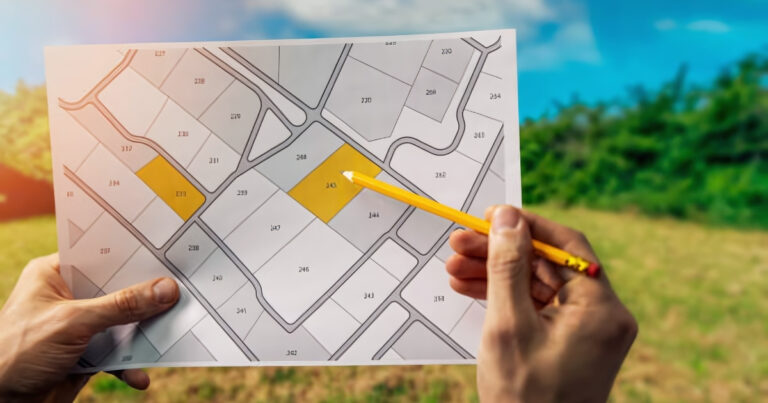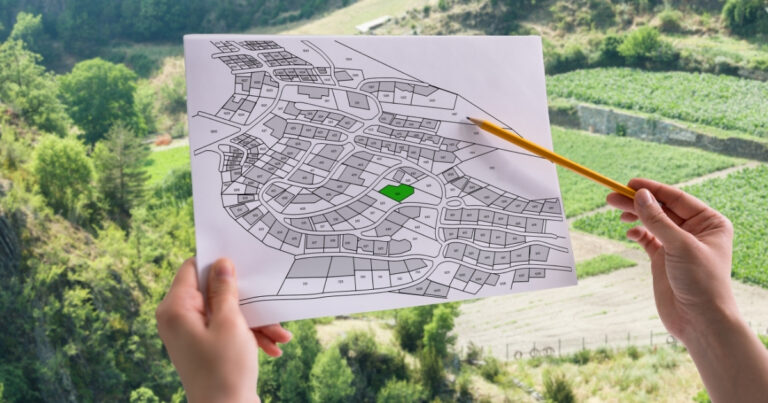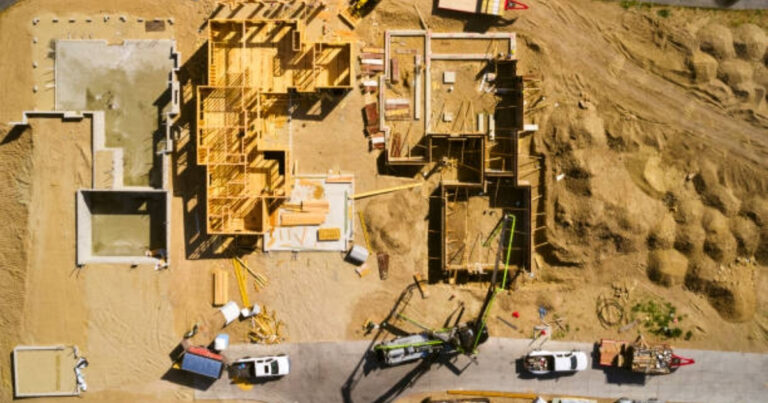Real Estate Feasibility Study Cost
Real estate feasibility studies are crucial for developers and investors to assess the viability of potential projects. The cost of these studies can vary significantly based on several factors and project scope. Understanding these costs is essential for budgeting and planning purposes.
Factors Influencing Feasibility Study Expenses
The cost of a real estate feasibility study is influenced by various elements:
- Project size and complexity
- Location and market conditions
- Depth of analysis required
- Expertise of consultants involved
- Timeline for completion
These factors can significantly impact the overall expense of the study. For instance, a large-scale commercial development in a prime urban location may require a more comprehensive analysis, thus increasing the cost.
Average Cost Range for Different Project Sizes
The cost of feasibility studies can vary widely depending on the project size:
- Small residential projects: $5,000 – $15,000
- Medium-sized commercial developments: $15,000 – $50,000
- Large-scale mixed-use projects: $50,000 – $200,000+
It’s important to note that these figures are approximate and can fluctuate based on the specific requirements of each project.
| Project Type | Low-End Cost | High-End Cost |
| Small Residential | $5,000 | $15,000 |
| Medium Commercial | $15,000 | $50,000 |
| Large Mixed-Use | $50,000 | $200,000+ |
Components of a Real Estate Development Feasibility Study
A comprehensive feasibility study encompasses several key components, each contributing to the overall cost.
Market Analysis and Its Impact on Costs
Market analysis is a critical aspect of any feasibility study. It involves:
- Demographic research
- Supply and demand assessment
- Competitor analysis
- Future market projections
The depth of market analysis can significantly affect the study’s cost. More detailed analyses, especially for complex markets, will require more time and resources, thus increasing expenses.
Financial Modeling and Projections
Financial modeling is another crucial component that impacts the cost of a feasibility study. This includes:
- Development cost estimates
- Revenue projections
- Cash flow analysis
- Return on investment calculations
The complexity of financial modeling can vary based on the project’s scale and the level of detail required, influencing the overall study cost.
Site Planning and Concept Iterations
Site planning and concept development are essential elements of a feasibility study. This process may involve:
- Preliminary architectural designs
- Zoning and regulatory compliance assessment
- Environmental impact studies
- Infrastructure analysis
Multiple iterations of site plans and concepts may be necessary, potentially increasing the study’s cost but providing valuable insights for project optimization.
- Site analysis costs: $2,000 – $10,000
- Concept development: $5,000 – $25,000
- Regulatory compliance assessment: $3,000 – $15,000
Importance of Investing in a Thorough Feasibility Study
While the cost of a comprehensive feasibility study may seem significant, it’s a crucial investment for any real estate development project.
Risk Reduction and Cost Savings
A well-executed feasibility study can help identify potential risks and challenges early in the development process. This foresight can lead to substantial cost savings by:
- Avoiding unforeseen expenses during construction
- Optimizing project design for efficiency
- Identifying potential regulatory hurdles in advance
Investing in a thorough study upfront can prevent costly mistakes and project delays down the line.
Informed Decision-Making for Developers
Feasibility studies provide developers with critical information to make informed decisions about their projects. This includes:
- Market viability assessment
- Financial projections and ROI analysis
- Potential challenges and mitigation strategies
Armed with this information, developers can confidently proceed with projects that show promise or avoid those with high risks.
Breakdown of Real Estate Feasibility Study Expenses
Understanding the breakdown of expenses in a feasibility study can help developers budget more effectively.
Professional Fees and Consultant Costs
Professional fees often constitute a significant portion of the study’s cost. These may include:
- Real estate analysts
- Market researchers
- Financial modelers
- Architects and planners
- Legal consultants
The expertise and reputation of these professionals can impact the overall cost of the study.
Data Acquisition and Research Expenses
Gathering accurate and up-to-date data is crucial for a reliable feasibility study. Expenses in this category may include:
- Market reports and industry data
- Demographic information
- Property transaction records
- Economic forecasts
The cost of data acquisition can vary based on the depth and specificity of information required.
Site Evaluation and Environmental Assessment Costs
Site-specific evaluations are essential components of a feasibility study. These may include:
- Soil testing and geological surveys
- Environmental impact assessments
- Traffic studies
- Utility capacity analysis
The complexity of the site and local regulations can significantly influence these costs.
| Expense Category | Typical Cost Range |
| Professional Fees | 40-60% of total cost |
| Data Acquisition | 10-20% of total cost |
| Site Evaluation | 20-30% of total cost |
| Miscellaneous | 5-10% of total cost |
Maximizing the Value of Your Feasibility Study Investment
To ensure you get the most value from your feasibility study investment, consider the following strategies:
Choosing the Right Consultants
Selecting the right team of consultants is crucial for a cost-effective and high-quality feasibility study. Consider:
- Experience in similar projects
- Local market knowledge
- Reputation and track record
- Ability to provide comprehensive analysis
Investing in experienced professionals can lead to more accurate and valuable insights, potentially saving money in the long run.
Streamlining the Study Process
Efficient project management can help reduce costs and improve the study’s effectiveness. Consider:
- Clearly defining study objectives and scope
- Establishing a realistic timeline
- Facilitating effective communication between all parties involved
- Regularly reviewing progress to avoid scope creep
A well-organized study process can minimize unnecessary expenses and ensure timely completion.
Leveraging Technology to Reduce Costs
Utilizing modern technology can significantly improve the efficiency and cost-effectiveness of feasibility studies. This may include:
- Advanced data analytics tools
- Virtual site inspection technologies
- Automated financial modeling software
- Cloud-based collaboration platforms
By leveraging these technologies, developers can potentially reduce labor costs and improve the accuracy of their studies.
Tax Implications of Feasibility Study Expenses
Understanding the tax implications of feasibility study costs is important for developers to manage their finances effectively.
Deducting Costs for Abandoned Projects
In cases where a project is abandoned after the feasibility study, the IRS generally allows developers to deduct these expenses. This can include:
- Professional fees
- Research costs
- Site evaluation expenses
It’s crucial to maintain detailed records of all expenses related to the feasibility study to support any tax deductions.
Capitalizing Expenses for Successful Developments
For projects that move forward, feasibility study costs are typically capitalized as part of the overall development cost. This means:
- Expenses are added to the project’s basis
- Costs are recovered through depreciation over time
- Tax benefits are spread out over the life of the asset
Developers should consult with tax professionals to ensure proper treatment of these expenses based on their specific circumstances.
Timeline and Duration of Real Estate Feasibility Studies
The duration of a feasibility study can significantly impact its cost and the overall project timeline.
Factors Affecting Study Duration
Several factors can influence how long a feasibility study takes to complete:
- Project complexity and scale
- Availability of data and information
- Regulatory requirements and approvals
- Stakeholder involvement and decision-making processes
Understanding these factors can help developers set realistic expectations for study timelines and associated costs.
Balancing Thoroughness and Efficiency
While a comprehensive study is crucial, it’s also important to balance thoroughness with efficiency to manage costs effectively. Strategies include:
- Setting clear objectives and scope from the outset
- Prioritizing critical analysis areas
- Utilizing parallel work streams where possible
- Regularly reviewing progress and adjusting as needed
A well-planned approach can help ensure a thorough study without unnecessary delays or expenses.
| Project Type | Typical Study Duration |
| Small Residential | 2-4 weeks |
| Medium Commercial | 4-8 weeks |
| Large Mixed-Use | 8-16 weeks or more |
Case Studies: Real-World Examples of Feasibility Study Costs
Examining real-world examples can provide valuable insights into the costs associated with feasibility studies for different types of projects.
Residential Development Projects
Case Study: 50-Unit Apartment Complex in a Suburban Area
- Total Study Cost: $35,000
- Duration: 6 weeks
- Key Components:
- Market analysis: $12,000
- Financial modeling: $8,000
- Site planning: $10,000
- Environmental assessment: $5,000
This mid-sized residential project required a comprehensive study to assess market demand, financial viability, and potential site constraints.
Commercial Real Estate Ventures
Case Study: Mixed-Use Development in an Urban Center
- Total Study Cost: $150,000
- Duration: 12 weeks
- Key Components:
- Market analysis and demand forecasting: $40,000
- Financial modeling and risk assessment: $35,000
- Site planning and architectural concept: $50,000
- Traffic and infrastructure studies: $25,000
This large-scale urban project demanded an extensive feasibility study due to its complexity and potential impact on the surrounding area.
DIY vs. Professional Feasibility Studies: Cost Comparison
Developers may consider conducting feasibility studies in-house to save on costs. However, it’s important to weigh the pros and cons of this approach.
Pros and Cons of Self-Conducted Studies
Pros:
- Potential cost savings on professional fees
- Greater control over the study process
- Intimate knowledge of the project vision
Cons:
- Lack of specialized expertise in certain areas
- Potential for bias or overlooked factors
- Time-consuming for internal staff
When to Invest in Professional Expertise
Professional feasibility studies are often worth the investment for:
- Large-scale or complex projects
- Developments in unfamiliar markets
- Projects requiring specialized knowledge (e.g., historic preservation)
- Situations where impartial analysis is crucial for stakeholders
The expertise and objectivity of professional consultants can provide valuable insights that justify the additional cost.
Financing Options for Real Estate Feasibility Studies
Funding a feasibility study is an important consideration for developers, especially for larger projects.
Incorporating Study Costs into Project Budgets
Many developers choose to incorporate feasibility study costs into their overall project budgets. This approach:
- Treats the study as part of the development cost
- Allows for more accurate financial projections
- May be necessary for securing initial funding
It’s important to account for these costs early in the planning process to ensure adequate funding is available.
Potential Funding Sources for Developers
Developers have several options for financing feasibility studies:
- Internal capital allocation
- Pre-development loans from banks or private lenders
- Investor contributions for joint ventures
- Government grants for certain types of projects (e.g., affordable housing)
Exploring various funding options can help developers manage the upfront costs of feasibility studies more effectively.
FAQs
What is the typical cost range for a real estate feasibility study?
The cost of a real estate feasibility study typically ranges from $5,000 to $200,000 or more, depending on the project’s size and complexity. Small residential projects may cost between $5,000 and $15,000, while large-scale mixed-use developments can exceed $200,000. The final cost is influenced by factors such as project scope, location, and depth of analysis required.
How can I reduce the real estate feasibility study cost without compromising quality?
To reduce costs while maintaining quality, consider streamlining the study process by clearly defining objectives and scope upfront. Leverage technology for data analysis and collaboration to improve efficiency. Additionally, prioritize critical areas of analysis and consider a phased approach, focusing on key aspects first before diving into more detailed studies if initial results are promising.
Are real estate feasibility study costs tax-deductible?
Real estate feasibility study costs can be tax-deductible in certain circumstances. For abandoned projects, these expenses are generally deductible as ordinary business expenses. For projects that move forward, the costs are typically capitalized and recovered through depreciation over time. It’s crucial to consult with a tax professional to understand the specific tax implications for your situation and maintain detailed records of all expenses.
How long does a comprehensive real estate feasibility study usually take?
The duration of a comprehensive real estate feasibility study can vary widely depending on the project’s complexity and scale. Typically, small residential projects may take 2-4 weeks, medium-sized commercial developments 4-8 weeks, and large-scale mixed-use projects 8-16 weeks or more. Factors such as data availability, regulatory requirements, and stakeholder involvement can also impact the timeline.
Can I conduct a real estate feasibility study myself to save on costs?
While it’s possible to conduct a feasibility study yourself, it’s often not recommended for complex or large-scale projects. DIY studies can save on professional fees but may lack the specialized expertise and objectivity that professional consultants provide. Self-conducted studies are more suitable for smaller projects or preliminary assessments. For significant investments or projects in unfamiliar markets, the insights and risk mitigation provided by professional studies often justify the cost.





